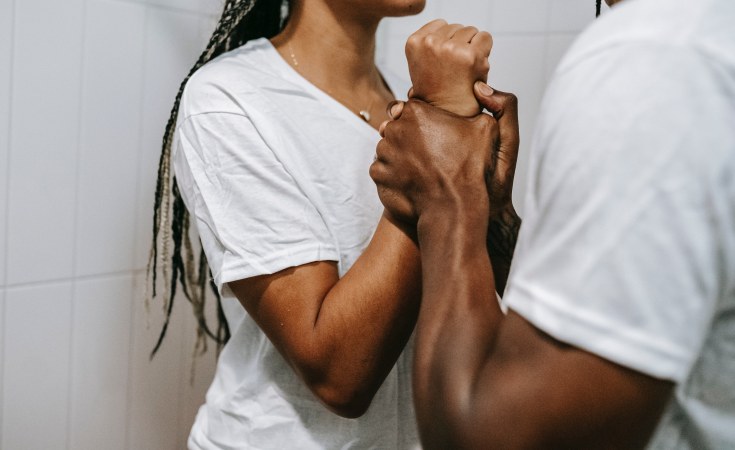Johannesburg — As 16 Days of Activism Against Gender-Based Violence nears, it has been revealed that 35% of women in the world and 45% in Africa have experienced gender-based violence in their lifetime. And the Afrobarometer survey has found that one in four African women, and even more African men say wife-beating is at least sometimes justified. In some countries, up to seven in 10 citizens endorse domestic violence.
Rape, sexual harassment, Female Genital Mutilation, forced marriages, widow inheritance and verbal abuse among others are too widespread in some African countries and can lead to serious health consequences especially for women and girls.
The Afrobarometer survey reveals that tolerance for violence against women is far higher in some countries, reaching seven in 10 citizens in Gabon (70%) and Liberia (69%). Majorities also see domestic violence as an acceptable practice in Niger (60%), Mali (58%), Guinea (58%), Cameroon (53%), and Burkina Faso (53%). In contrast, no more than one in 20 respondents in Cabo Verde, Madagascar, eSwatini, and Malawi are willing to accept domestic violence.
Several West and Central Africa countries has been racked by conflict over the past decade, these include Côte d'Ivoire, Democratic Republic of the Congo, Liberia and Sierra Leone leaving women and girls most vulnerable to gender-based violence. International organisations like the United Nations and its agencies including UNICEF have over the years supported states affected by conflict to be involved in negotiating and some implementing peace measures to ensure protection of women and children's rights. Liberia and Sierra Leone have gender-based violence plans of action with Côte d'Ivoire adopting a three-year action plan in targeting violence against women and girls in 2010.
"Situations of civil conflict heighten the vulnerabilities of women and girls to acts of gender-based violence. It is in contexts of conflict that every day gender inequalities become more apparent and visible. In turn the civil conflicts worsen the gender disparities that already exist. This creates a cyclical reinforcement of violence and discrimination," says Nyasha Karimakwenda, a feminist socio-legal researcher and consultant on gender and women's rights.
The World Bank says violence against women is estimated to cost countries up to 3.7% of their GDP, more than double what most governments spend on education. This proves that the issue does not just affects survivors of violence and their families, but also entails significant social and economic costs.
Numerous studies have shown that children growing up with violence are at greater risk for repeating the cycle as adults by entering into abusive relationships or becoming abusers themselves, they are also likely to smoke, misuse alcohol and drugs, and engage in high-risk sexual behaviour and are at higher risk for health problems as adults. according to the World Health Organisation. These can include mental health conditions, such as depression, anxiety, suicide and other mental health problems.
How do ideas about gender equality and violence in the home impact on how peaceful a society is? Karimakwenda says "There isn't a straightforward relationship between a politically peaceful society and dynamics in the home. Some societies that are characterized as relatively peaceful may still have high rates of domestic violence for example. The power of patriarchy is such that ideas of male superiority are normalized. As the survey shows, both men and women are socialized to accept men's use of violence. This can have the effect of obscuring how prevalent violence or inequality in the home is. I would however say that the more gender equality there is in the home, the more equal a society is. The personal is political. Therefore the home is the starting point. The power dynamics there are a microcosm of society."
In South Africa, thousands of demonstrators took to the streets this year in protests triggered by the killing of 19-year-old University of Cape Town student Uyinene Mrwetyana. The demonstrators demanded President Cyril Ramaphosa declare gender-based violence and femicide a state of emergency. These actions lead to the president promising that harsher punishment will be granted and more funding will be allocated to protect women against gender-based crimes. South African statistic on gender based violence are not the only shocking ones.
In Uganda, 62% of Gender Based Violence is by intimate partners and largely affects women between the ages of 15 to 49. The Uganda Health and Demographic Survey (UDHS) of 2011 showed that 63% of the women in Uganda had experienced physical or sexual violence or both in their lives. In Chad and Niger over 75% of girls marry before the age of 18. They drop out of school and many become pregnant soon after.
For sustainable development, it is important that African states acknowledge the different kinds of violence women and girls face every day, and the consequences these issues have for the affected individuals and communities.


